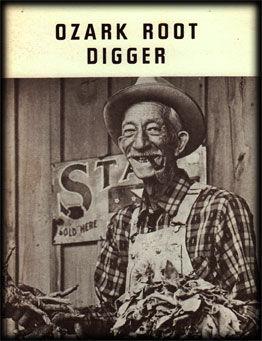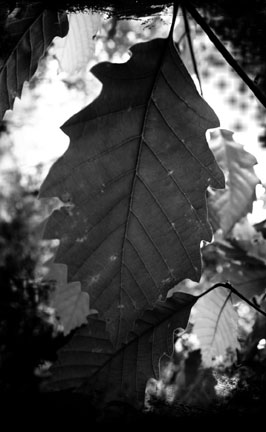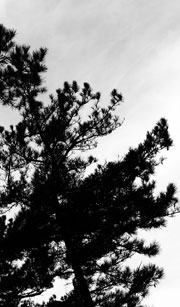Nat Kinney, Bald Knobber
from Chick Allen
In 1880, a man named Nat Kinney came to the hill country, looking for peace, so he said, and bought a farm near Kirbyville, a few miles from Branson. He was a large man about 300 pounds in weight — six and a half feet tall.
He wore two six-guns strapped on his hips and told all there were four notches on the guns. He had fought in the Civil War, ranged over the wild west, cracked several skulls in a saloon in Springfield that he owned, and wanted to settle down in the hill country.
He started a Sunday school and church service at Oak Grove Schoolhouse. The Bible was placed on the home-made pulpit with a pistol on each side and told the Ozark hill folks that lawlessness should be stopped and said he knew how it could be done.
There had been over 30 murders known in Taney County since the war — [as well as] robberies and other crimes — and no one had been arrested and convicted. He convinced the people, with his powerful talk and giant size and guns to back up, that he wanted them to back him up, as his experience with vigilantes of the west would make them a good leader, and that is what the hill folks needed.
They wanted a private place to meet so they chose the top of a bald mountain near Kinney's home, where they could see if a stranger came to the meeting.
They decided the name of the organization would be the Baldknobbers and soon numbered 300.
A period of terror followed as they rode through the hills with their crude flour sack masks. They were now the law of the land and Nat Kinney was the judge. They would receive punishment to suit his taste. There were hill folks who did not agree with this organization and so two factions were formed — the Baldknobbers and the Anti-Baldknobbers. The greatest feud of the hill country was in the making.
The situation touched off the powder keg and every night bands of men roamed the hills and the fires of burning homes lighted the skies of the Ozarks. Screams of men beeing whipped were heard and also of women mistreated by the masked riders. They cried and pleaded for mercy and the children, not understanding, were knocked from the path of the boots of the marauders.
Months of this feud continued and each blamed the other. The Anti Baldknobbers blamed the gang under Kinney and any crime committed was blamed on either one gang or the other. One man who was beaten severely many times by the Kinney gang but still stood his ground was Andrew Coggburn, who had plenty of reason for his bitterness against the Baldknobbers.
Continued above right...

plate 1. These stories were first written and published by Chick Allen in 1975.
Pictured below, Allen is remembered as an Ozark historian and “root digger” a founding member of the Baldknobber Music Show, and, perhaps most importantly, as a deeply respected and loved father and grandfather.
It is with great appreciation to John Fullerton — Chick Allen's great grandson and Branson historian — that this excerpt is published.
The Song of Andrew Coggburn
- There is one big black rascal whose name I will expose, His name is Nat Kinney and he wears his Federal clothes,
- He tried to boss the people and make this do his will, There's some that do not fear him, but others mind him still.
- Baldknobbers are no gentlemen, they're nothing more than hogs, They tried to hunt me down, boys, and treat me like a dog.
- With all their guns and horses, they tried to hunt me down, And treat me like the Taylor boys, who now lays in the ground.
- There's one big Bald Knobber who is a noted rogue, He stole from Joseph Bookout, some sixteen head of hogs,
- Walked boldly in the courthouse and swore they was his own, He stole them by the drove, boys, and herded 'em over home.
- These Knobbers run the country, but they can't keep it up, They'll stick their tail between their legs like any other pup,
- And there's a day a'coming, boys, when they will hunt their dens, And if I'm not mistaken, there's some will find their ends.
Nat Kinney (Continued):
He called Kinney the "Old Blue Gobbler" and said he strutted around like a swelled-up turkey. Coggburn wrote a song as he became more bitter.
After this song, trouble between these two men became evident, and early in March, 1886, when Kinney still was preaching at the Oak Grove School, [Kinney] marched up the path before the building and saw young Coggburn close by with a group of men. They met and their hands hung close to their guns and suddenly there was a movement and the gunfire rocked the little church building.
Then the smoke cleared the air, the "Old Blue Gobbler" stood unharmed and young Coggburn lay dying in the dust. This was the sign that the end was near and the Anti-Knobbers sent out word to "get him, any way you can. Nat Kinney has got to die."
The end came August 21, 1888, when Kinney was in the store in Forsyth, which he had acquired in a lawsuit from a man named Berry. The hill folks in the street heard a crash of gunfire from the building and a moment later a young man named Billy Miles came to the doorway saying that he had got the "Old Blue Gobbler" for sure. When the folks went inside, they found Kinney on the floor dead with four bullets in his body.
The Baldknobbers claimed their leader was the victim of a cowardly murder. Billy Miles claimed self-defense, but was arrested as a matter or routine and quickly acquitted, so the town rejoiced in the streets and said Billy Miles was a hero. Some said the shooting would be avenged but nothing was done about it and Kinney was buried in an unmarked grave in the Swan Creek Cemetery.
Peace settled at last over the Ozark hills.



